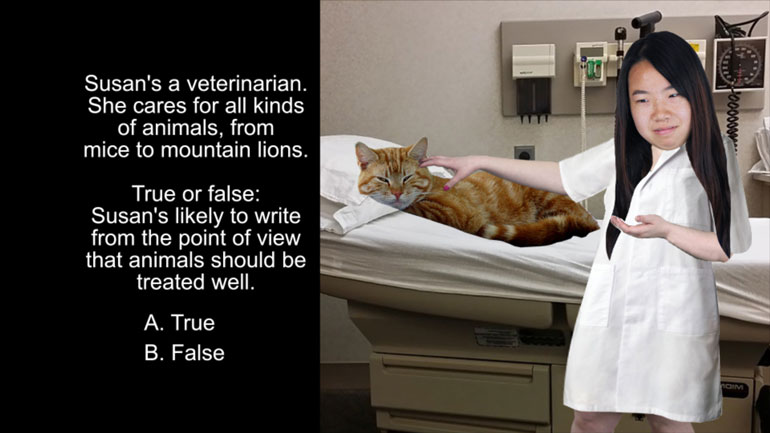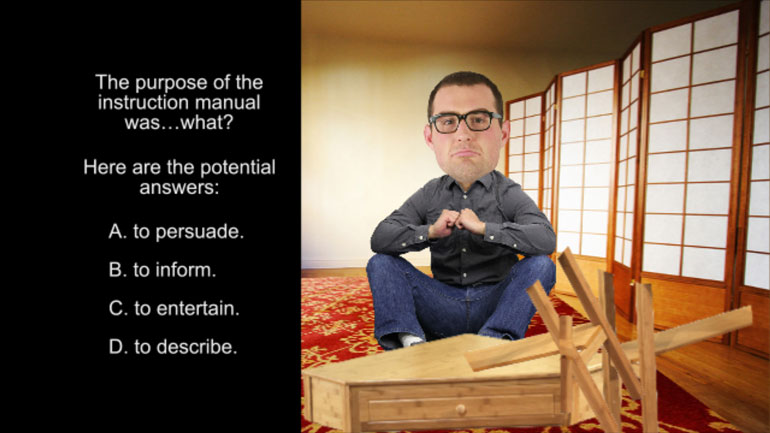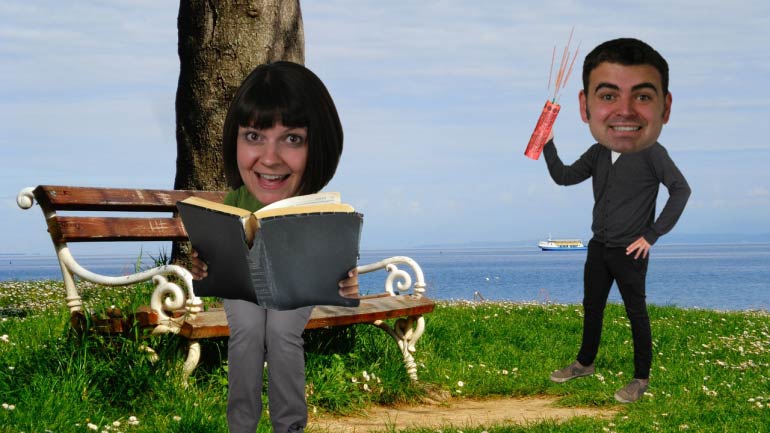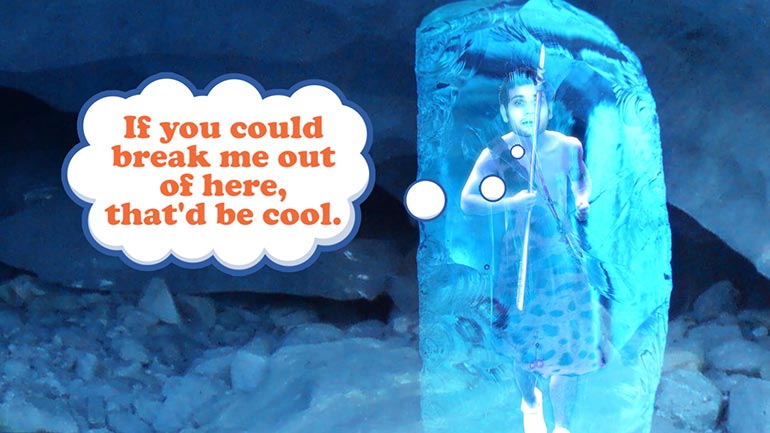ShmoopTube
Where Monty Python meets your 10th grade teacher.
Search Thousands of Shmoop Videos
ELA 3: Letter Perfect 10 Views
Share It!
Description:
News Flash: Letters make noises. And not just when they step on legos. Today we'll talk about how people learn these noises and how they fit together.
Transcript
- 00:03
[Dino and Coop singing]
- 00:13
Today, we want to talk about baby talk.
- 00:16
Don't worry, we won't talk about baby talk in baby talk. [Baby covered in feathers]
- 00:19
That'd be super irritating and weird.
- 00:22
We just mean that we want to talk about all of those sounds a baby makes before it knows [Baby with an adult face farts]
Full Transcript
- 00:25
any words.
- 00:26
See, speaking starts with sounds – just like “goo-goo” and “ga-ga”––that
- 00:30
we then use like building blocks to make words.
- 00:33
We call this “phonics,” which is a term that describes the relationship between letters, [Coop pointing at a blackboard]
- 00:37
sounds, and meaning.
- 00:38
It's all about learning to recognize that certain letters have certain sounds, as well [Dino pointing at a blackboard]
- 00:42
as learning to recognize that certain sounds are either soft or hard.
- 00:45
Though we wouldn't recommend snuggling in bed with any sounds…let's leave that job [Girl looking scared in bed]
- 00:49
to the teddy bears.
- 00:50
Anyway, phonics isn't just about letter sounds –
- 00:52
it's about the sounds of letter combinations, too!
- 00:55
See, we've got our vowels... that's A, E, I, O and U.
- 00:58
And we also have our consonants, that's B, C, D, F.... well…you get the picture.
- 01:03
So while phonics allows us to recognize that an “L” makes a “luh” sound, it also
- 01:07
allows us to recognize many common letter combinations, too. [Glass of lemonade]
- 01:11
Like how an “l-d” sounds like “uhld” as in “old.”
- 01:15
And “l-t” sounds like “uhlt” as in “bolt.”
- 01:18
And “m-p” sounds like “uhmp” as in “lamp.”
- 01:21
Sometimes, letter combinations can sound differently depending on the word. [Dino pointing at a blackboard]
- 01:25
For example, “c-h” sounds hard in words like “Chief” and “Choose” but sounds
- 01:30
soft in words like “choir” and “character.”
- 01:33
“S-c” also has both a hard and soft sound, like “scary” and “scold” versus
- 01:38
“science” and “scenic.”
- 01:40
Phonics also helps us to remember those so-weird-they-barely-make-any-sense sounds, [Coop pointing at a blackboard]
- 01:45
like how “p-h” actually makes
- 01:48
a “fff” sound like in “phone” and “phonetics.”
- 01:51
English is a wacky, wacky language. [Woman wearing a weird joker style costume]
- 01:54
But on the bright side, once you've practiced reading and using all of these sounds, you'll [Man reading in a classroom]
- 01:58
be able to decode and learn more and more difficult words in a jiffy!
- 02:02
In other words, reading is entirely built on these very basic sounds.
- 02:05
All thanks to phonics!
- 02:06
So get crackin', and pretty soon, words like this will be easy as pie… [List of long words]
- 02:10
Just…don't ask us to pronounce any of those… [Guy holding pies]
- 02:13
seriously, an "s" and a "g"? [The word sgraffito]
- 02:15
That's even worse than the whole "p-h" debacle.
Up Next
ELA Drills, Beginner: Point of View. Is the statement in the video true or false?
Related Videos
ELA Drills, Beginner: Textual Analysis 1. The purpose of the instruction manual was...what?
ELA Drills, Beginner: Point of View 3. Which sentence in the passage best shows the narrator's point of view on the topic of Chelsea Simpson?
We wanted to make a video about sedentary rocks, but we couldn't get lazy uncle Rocky off the couch. Oh well. We'll teach you about sedimentary roc...
Today we're bringing you the opposite of Jurassic Park—how living things become fossils. Okay okay, it might not be quite as fun...but hey, at le...




